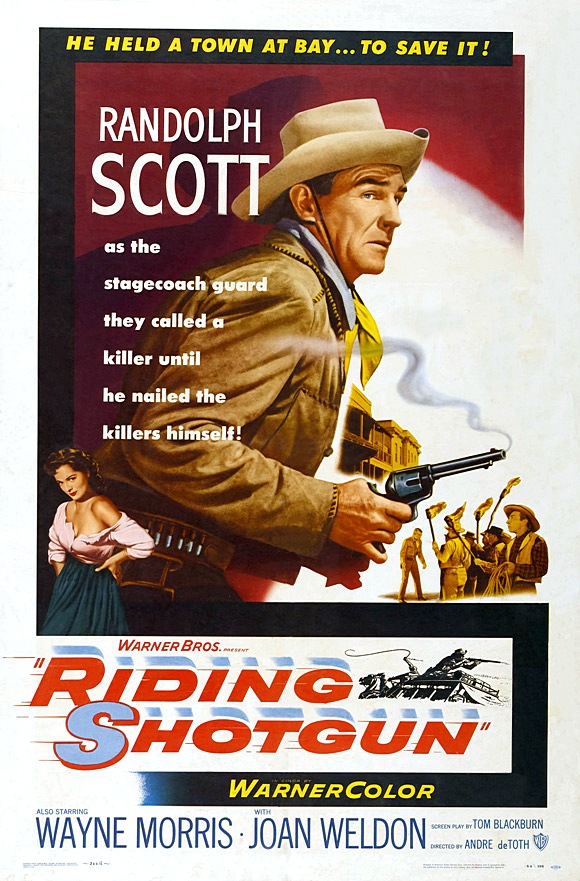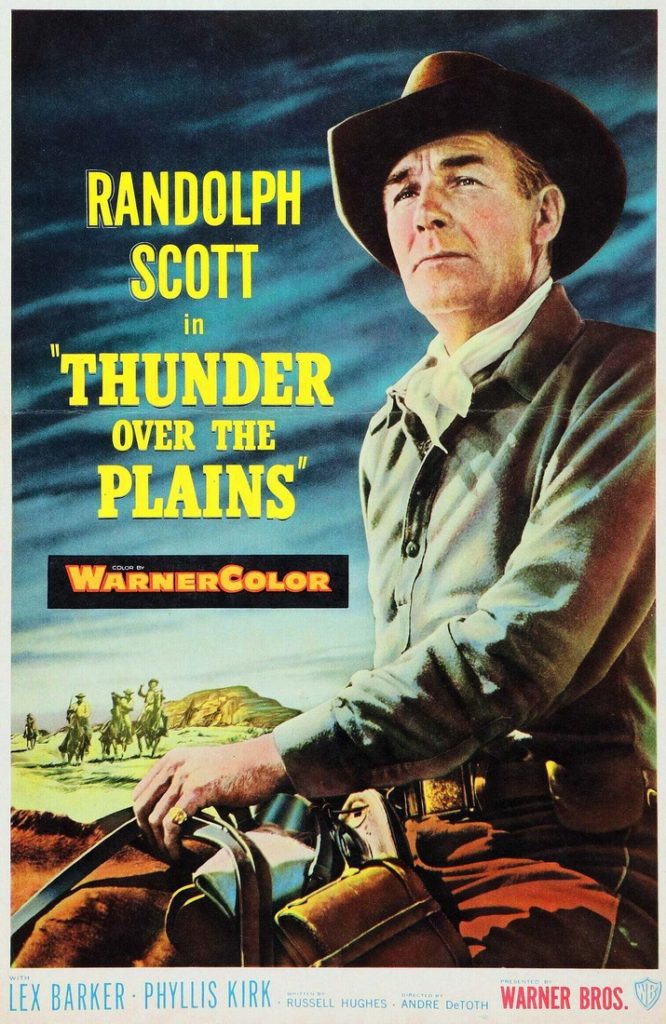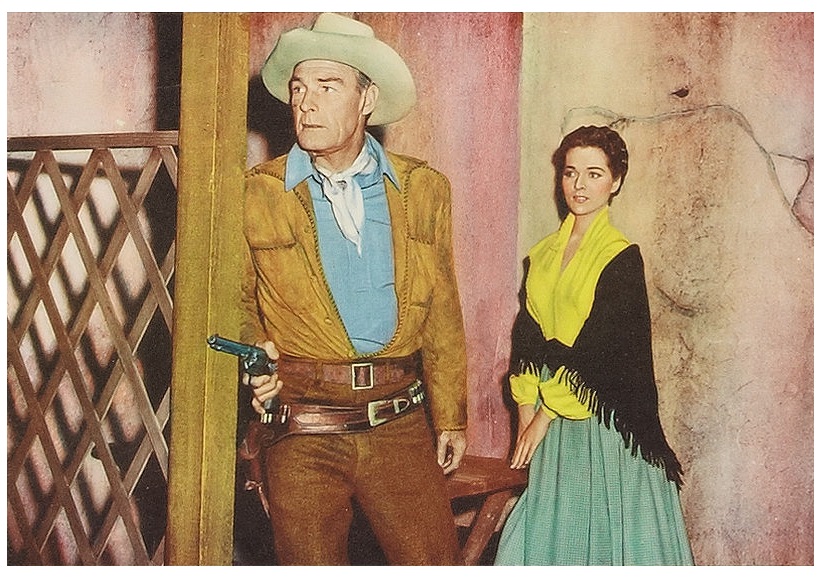Each Monday, I continue to share Western movie reviews. I have now launched a podcast about the making of Westerns and the overall filmmaking process. Click here to listen.
Week 158: Riding Shotgun (1954) & Thunder Over the Plains

This 1954 Scott/De Toth collaboration, released the same year as the masterful The Bounty Hunter, is a near-great Western. It immediately distinguishes itself from the others with voiceover from Scott that runs the entire length of the film. Sometimes this tool is fun and other times I felt it was unnecessary and tedious. More than perhaps any other element in any of the Scott/De Toth films which are often cited by critics and scholars, the style of this narration makes a slight connection to Film Noir.
Like The Bounty Hunter, the town is not only a character here but a villain, perhaps Scott’s true antagonist. As the citizens quickly turn against the hero, De Toth captures the hysteria that can take hold in a community, perhaps reflecting McCarthyism and certainly remaining relevant in our “guilty until proven innocent” society of today. Though Scott is reliable as usual, it’s the supporting characters in the town that give this film its strength: from Wayne Morris’ hungry and sensible Sheriff Tub to Fritz Feld’s sleazy cantina owner to the very creepy, quiet Vic Perrin who just walks around with a rope ready to lynch someone. The film leans on these characters and actually spends more time with them than the protagonist. This reminded me that the Western, perhaps more than any genre, is reliant on the strength of its supporting parts.
The bad guys are good too, from James Millican’s Marady to a fun early heavy part for Charles Bronson. Employing his trademark style, it was fun to see De Toth once again play with darkness (Scott shoots out a candle for cover, shoots out chandeliers in the film’s finale action sequence). I’ll write more about this use of darkness in my book about Western directors. Riding Shotgun also aims for a more realistic approach at times. In another connection to The Bounty Hunter, Scott’s character is actually shown reloading his weapon mid-fight. And the general feel of the film is more grounded. It has a shot-on-the-street vibe as it focuses on all the citizens, approaching a Kazan-like vibe at times.
If it weren’t for a cringe-worthy cheesy ending and a few flaws here and there, this might have been De Toth’s best Western.
Watched on DVD

This Scott/De Toth collaboration isn’t a bad Western but it’s uncharacteristic of their collaboration and remains one of their least impressive efforts.
With a fairly routine post-Civil War story focused on the U.S. Cavalry, the narrative bares no resemblance to the other pictures De Toth made with his leading man. The unique cynical tone that usually underlines his work is completely missing here and the film feels like it could have been directed by any other Western craftsman. Even the romantic relationship has no edge here. In most of the Scott/De Toth Westerns, the hero’s relationship with his female interest is one of the key elements, whether it’s a competition between two women or between men for the same woman. In this film, there is an attempt at showing that kind of tension but Scott’s competitor, Lex Barker, is such a poorly drawn character that he is never believable as a true contender to take the lady away. In fact, I wish they’d cut out that whole subplot and either portrayed Phyllis Kirk as a completely reliable wife or one that has serious doubts about the choices her husband makes. But with this Western, De Toth does not focus on the right elements.
The strongest moments involve the antagonists, from Charles McGraw’s Robin Hood-like anti hero to Elisha Cook Jr.’s weaselly carpetbagger. If he’d leaned on these supporting parts more, as he did in Riding Shotgun, I suspect the film would have worked better.
Once again, De Toth plays with darkness in fun ways from a day-for-night suspenseful walk down the street with an informer character to a great moment when Scott saves himself by swiping a candle off a table. As my study of the director’s work comes to a close, I am convinced that his use of darkness as a dramatic is unparalleled by any other filmmaker in the Western genre.
Watched on DVD.


